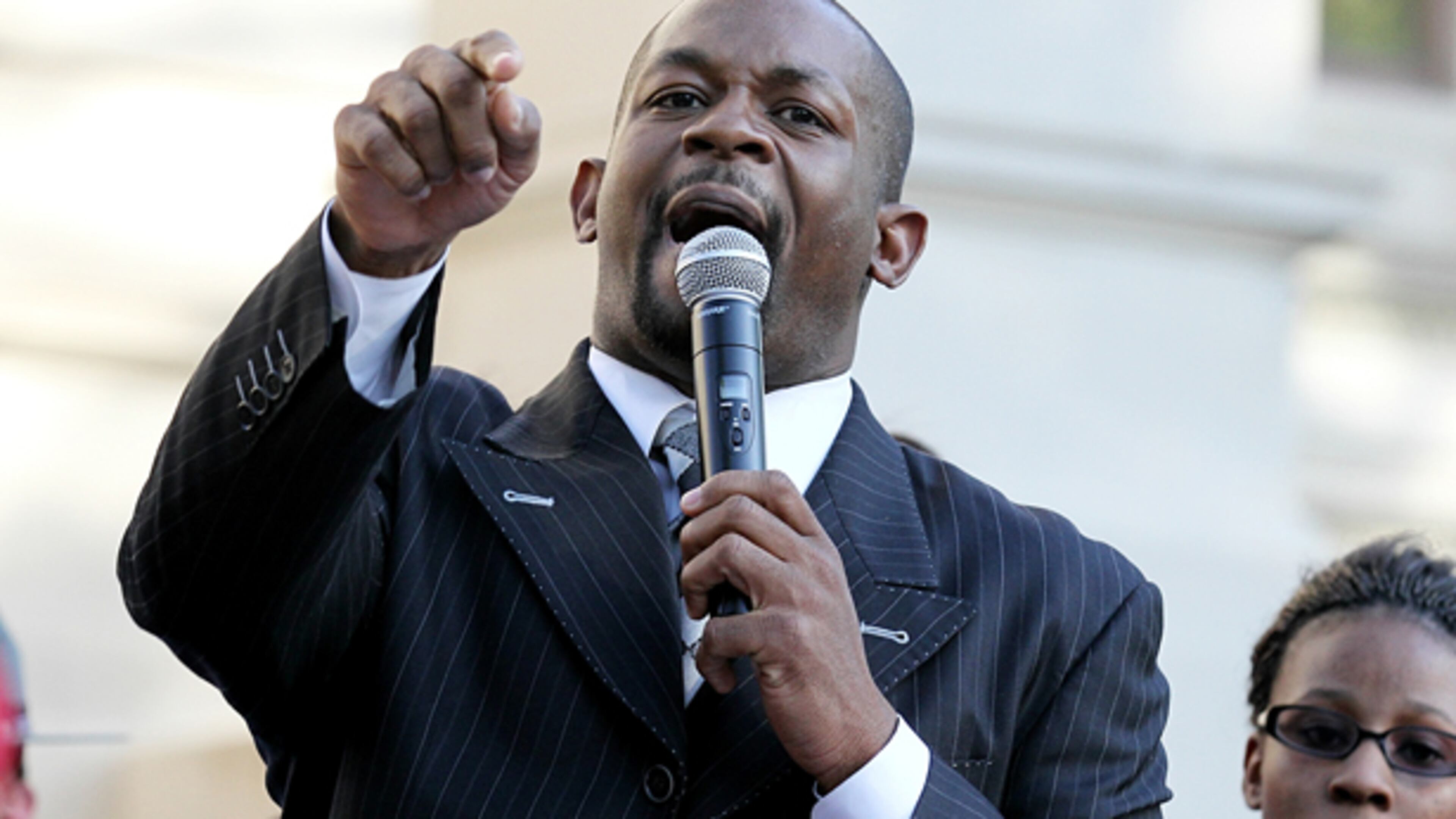Hutchins wins round in Johnston litigation

The Rev. Markel Hutchins inserted himself into the case within hours after 92-year-old Kathryn Johnston was fatally shot Nov. 21, 2006, by Atlanta police in an illegal drug raid.
Hutchins hurried to the scene after seeing TV reports of the killing. He began serving as spokesman for Johnston’s surviving relatives, carefully managing their public appearances and their comments to the media. He called for those responsible to be held accountable.
Hutchins also contends he had a verbal agreement with Sarah Dozier, Johnston’s niece and the administrator of her estate, to receive 10 percent of any award granted to the family for the shooting. When the family refused to pay anything to Hutchins after the city settled the case for $4.9 million, he filed suit.
The Georgia Court of Appeals recently issued two opinions in Hutchins’ favor, keeping his claims alive. Now, six years after the killing, Hutchins says he is confident he will ultimately collect what he believes to be his share.
In one decision, the appeals court ordered a Fulton Probate Court judge to hold a hearing to decide whether Hutchins is a creditor of Johnston’s estate. The other ruling allowed Hutchins’ suit in Fulton Superior Court against Dozier and the family’s law firm to go forward. In that case, Hutchins raised two claims — that he had verbal contract with Dozier and that he deserves fair compensation for the valuable services he provided Johnston’s heirs.
“It’s a most unfortunate situation and it further harms the legacy of Kathryn Johnston,” Hutchins said of the case. “When we reached that agreement, we didn’t know whether there would be a settlement for $10,000 or for $15 million. … But they didn’t reimburse me one single dime, and that agreement was clear.”
Hutchins, an ordained Baptist minister, runs a public affairs consulting firm for labor unions, individuals, churches and other entities.
Atlanta lawyer William Hill, who represents Johnston’s relatives, predicted Hutchins’ cases will eventually be dismissed.
“His claims aren’t true,” Hill said. “He says he entered into a contract. That didn’t happen.”
Hutchins maintains he was instrumental in the estate being awarded the settlement by meeting with lawyers, city officials and police, Hill said. “Everything he’s describing is what lawyers do, and if you’re not a lawyer, you can’t engage in the unauthorized practice of law. That’s unlawful activity. Because of that, he’s not entitled to anything.”
Atlanta lawyer Foy Devine, one of Hutchins’ attorneys, said he was pleased with the recent court decisions.
“We believe we can prove there was an agreement, and I don’t think it’s even a close call as to whether he provided valuable services to the family,” Devine said. “We intend to proceed forward to obtain justice for Reverend Hutchins.”
Johnston was killed when a police drug unit tried to execute a “no-knock” warrant on her home using faulty information from an informant. Johnston, thinking she was victimized by a home invasion, fired a warning shot through the door.
Narcotics officers responded with a hail of gunfire, killing her. When no drugs were found in her home, officers planted evidence that had been recovered from another raid. In February 2009, a federal judge sent three former APD officers to prison for their roles in the case.


